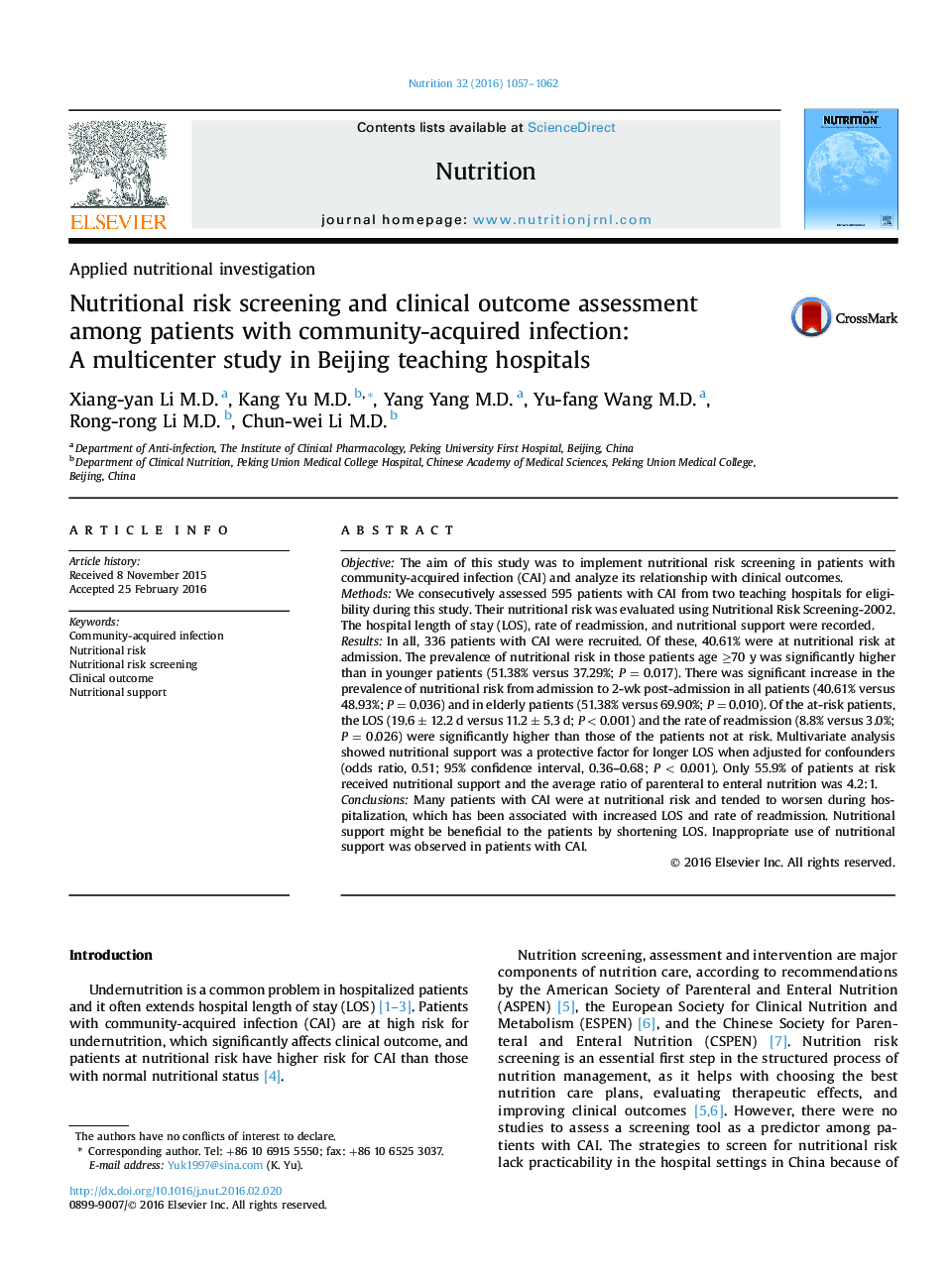| Article ID | Journal | Published Year | Pages | File Type |
|---|---|---|---|---|
| 3276114 | Nutrition | 2016 | 6 Pages |
•A large proportion of patients with community-acquired infection (CAI) were at nutrition risk.•Nutrition risk leads to worse outcome by longer hospital lengths of stay (LOS) and higher readmission rates.•Nutrition support might be beneficial to patients with CAI by a shorter LOS.•Inappropriate use of nutrition support was observed in patients with CAI in China.
ObjectiveThe aim of this study was to implement nutritional risk screening in patients with community-acquired infection (CAI) and analyze its relationship with clinical outcomes.MethodsWe consecutively assessed 595 patients with CAI from two teaching hospitals for eligibility during this study. Their nutritional risk was evaluated using Nutritional Risk Screening-2002. The hospital length of stay (LOS), rate of readmission, and nutritional support were recorded.ResultsIn all, 336 patients with CAI were recruited. Of these, 40.61% were at nutritional risk at admission. The prevalence of nutritional risk in those patients age ≥70 y was significantly higher than in younger patients (51.38% versus 37.29%; P = 0.017). There was significant increase in the prevalence of nutritional risk from admission to 2-wk post-admission in all patients (40.61% versus 48.93%; P = 0.036) and in elderly patients (51.38% versus 69.90%; P = 0.010). Of the at-risk patients, the LOS (19.6 ± 12.2 d versus 11.2 ± 5.3 d; P < 0.001) and the rate of readmission (8.8% versus 3.0%; P = 0.026) were significantly higher than those of the patients not at risk. Multivariate analysis showed nutritional support was a protective factor for longer LOS when adjusted for confounders (odds ratio, 0.51; 95% confidence interval, 0.36–0.68; P < 0.001). Only 55.9% of patients at risk received nutritional support and the average ratio of parenteral to enteral nutrition was 4.2:1.ConclusionsMany patients with CAI were at nutritional risk and tended to worsen during hospitalization, which has been associated with increased LOS and rate of readmission. Nutritional support might be beneficial to the patients by shortening LOS. Inappropriate use of nutritional support was observed in patients with CAI.
